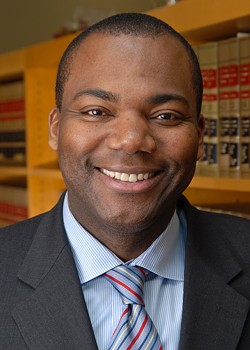News Blog
All eyes are on Chicago

- FILE PHOTO
- Former Rochester Superintendent Jean-Claude Brizard, no stranger to conflict with teachers in Rochester, has run into similar conflicts in Chicago, where teachers are striking.
It’s hard not to be fascinated by what’s going on in the Chicago School District. The teacher strike in the nation’s third largest school district, now in its second day, has all of the elements of great drama.
For starters, there’s Rochester’s connection to the Chicago schools’ chief, Jean-Claude Brizard. After a tumultuous three and half years as Rochester’s superintendent, his awkward departure for Chicago left many people happy to see him go.
But this strike is not about Brizard.
The country is fixated on Chicago because we’re watching a conflict erupt over very divergent ideologies about the nation’s public schools. And it’s a battle that has been brewing for years.
On one side is Chicago Mayor Rahm Emanuel, a powerful Democrat and former senior aide to President Obama. Emanuel and Arne Duncan, Obama’s education secretary and former head of Chicago schools, helped create the president’s Race to the Top reform policy. Both men have been vocal critics of the teachers union and strong advocates of rigorous teacher evaluations.
On the other side is one of the nation’s largest labor unions, which has shown it is willing to go to the bunkers on behalf of its members. The strike is as disruptive as any major labor strike in recent memory, causing tremendous hardship on Chicago’s nearly 400,000 students and their families. While negotiations over pay increases for teachers seemed to be close to a settlement, the union, at least for now, is standing firmly against the evaluations.
Linking teacher performance to student test scores, a major component of the RTTT reform policy, has been a flashpoint for Chicago’s teachers. But it’s also emblematic of a deeper struggle: many of the country’s largest cities that have been grappling for years with educating their predominantly poor minority student populations.
While the public has rightly lost patience with a lack of accountability and unions that protect incompetent teachers, educators in most urban school districts are facing incredible challenges. And there’s no denying that the public’s neglect, underfunding, and white flight has exacerbated the problems teachers are confronting.
But there’s deep denial by parties on both sides of the education conundrum, and millions of children and their families are caught in the middle.
With some luck, Emanuel and Chicago’s teachers will reach a settlement soon. But unless the country begins to more fully address the needs of the urban poor, the crisis in urban education is likely to boil over in more American cities.